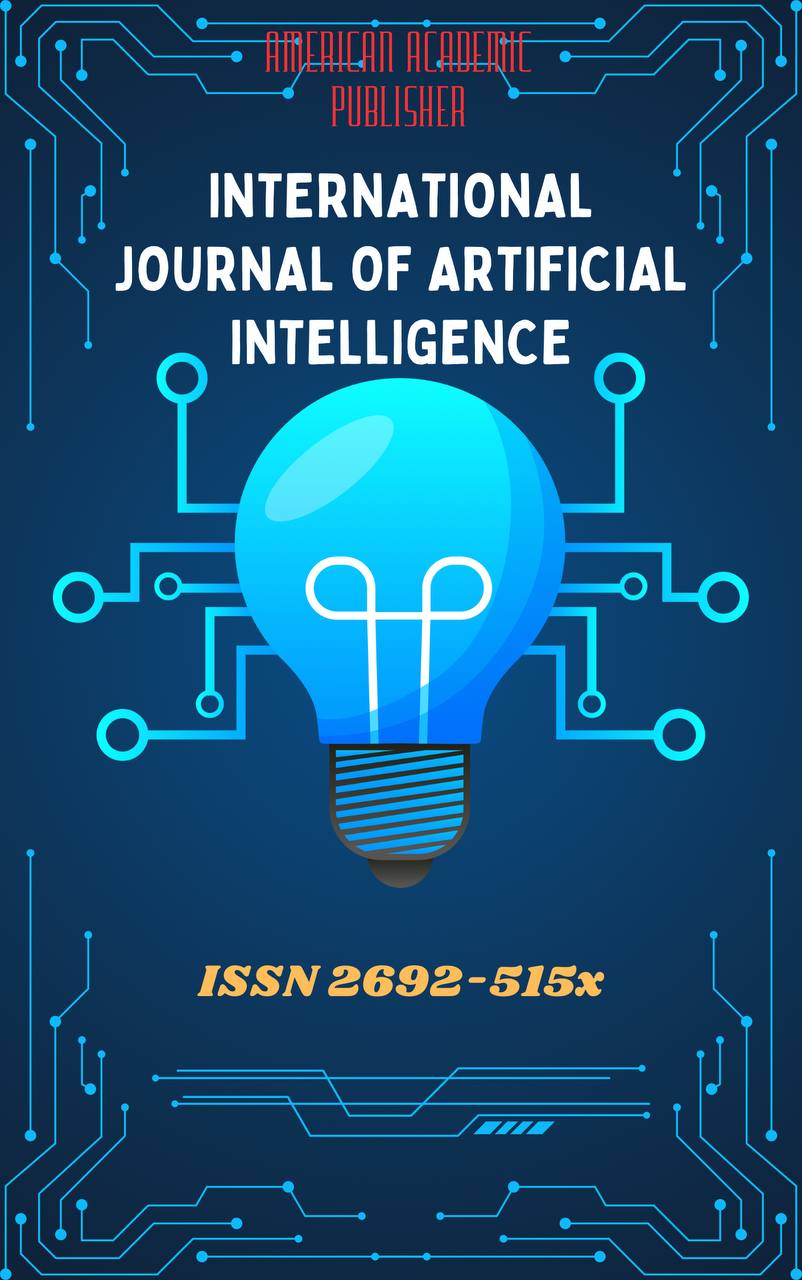 Articles
| Open Access |
Articles
| Open Access | INTEGRATING HUMANITIES INTO DIGITAL TRANSFORMATION:A STRATEGIC IMPERATIVE FOR UZBEKISTAN
Vakhobova Marguba Abdukhamidovna,Kuchkorova Zarnigorbegim Muzaffar kizi , Tashkent State University of EconomicsAbstract
This article highlights the significant contribution of the humanities to the evolution of the digital economy, particularly in Uzbekistan. It emphasizes the importance of skills such as critical thinking, cultural awareness, and ethical decision-making — all of which are cultivated through humanities education. The core message is that for digital advancement to flourish, a combination of technical expertise and human-focused skills is essential.
Keywords
Humanities, Digital Economy, Uzbekistan, Education Reform, Digital Literacy, Interdisciplinary Learning, Future Workforce, Critical Thinking, Ethics in Technology, Global Insights
References
Presidential Decree of the Republic of Uzbekistan No. PF-6097 dated October 29, 2020, "On the Approval of the Concept for the Development of Science Until 2030".
https://lex.uz/ru/docs/-5073447
Presidential Decree of the Republic of Uzbekistan No. PF-158 dated September 11, 2023, "On the Strategy ‘Uzbekistan – 2030’".
https://lex.uz/docs/-6600413#-6605156
Vakhobova M.A. Improving Innovative Education in Higher Education Institutions within a Digital Society // International Conference on Developments in Education. January 21, 2024. – Toronto, Canada. 2024. – PP. 50–52.
Vakhobova M.A. Impact of Higher Education Reforms on New Uzbekistan // Proceedings of the Republican Scientific-Practical Conference “Modern Approaches in Teaching Social and Humanitarian Sciences”, November 18, 2024. – Karshi, 2024. – PP. 324–326.
Brynjolfsson, E., & McAfee, A. (2014). The Second Machine Age: Work, Progress, and Prosperity in a Time of Brilliant Technologies. W.W. Norton & Company.
Schwab, K. (2016). The Fourth Industrial Revolution. Crown Publishing Group.
Fuchs, C. (2017). Digital Labour and Karl Marx. Routledge.
UNESCO. (2020). Shaping the Future of the Digital Economy: The Role of Humanities and Social Sciences. United Nations Educational, Scientific and Cultural Organization.
Uzbek National Agency for Project Management (2023). Digital Uzbekistan – 2030 Strategy: Key Developments and Future Prospects. Available at: https://uzdaily.uz
UzDaily. (2023). Uzbekistan's Digital Economy: A New Era of Innovation and Technological Integration. Available at: https://uzdaily.uz
Tashkent State University of Economics (2022). Digitalization and Economic Transformation in Uzbekistan: Policy and Prospects. TSEU Press.
World Economic Forum. (2018). The Human Factor in the Digital Age: The Role of Humanities in Shaping the Future Workforce. Available at: https://www.weforum.org
OECD. (2019). Skills for the Digital Economy: Bridging the Gap between Education and the Digital Workforce. Organisation for Economic Co-operation and Development.
Frolova, O. V., & Nikitina, O. I. (2019). Integrating Digital Technologies with Humanities Education: Challenges and Opportunities. Journal of Digital Humanities, 5(2), 45-58.
Daryo.uz. (2023). Digital Uzbekistan: Can the Republic Achieve Leadership in Central Asia? Retrieved from https://www.daryo.uz
Review.uz. (2023). Digital Transformation of Uzbekistan. Retrieved from https://www.review.uz
CyberLeninka. (2023). Humanities in the Era of Digital Transformation: Challenges and New Perspectives. Retrieved from https://cyberleninka.ru
Gubkin UZ. (2023). Conditions for the Integration of Education, Science, and Industry in Modern Uzbekistan. Retrieved from https://www.gubkin.uz
LLC "ID Sreda". (2023). Integration Mechanisms for the Development of the Digital Economy and Prospects for Their Activation in Russia. Retrieved from https://www.sreda.com
Article Statistics
Downloads
Copyright License

This work is licensed under a Creative Commons Attribution 4.0 International License.

